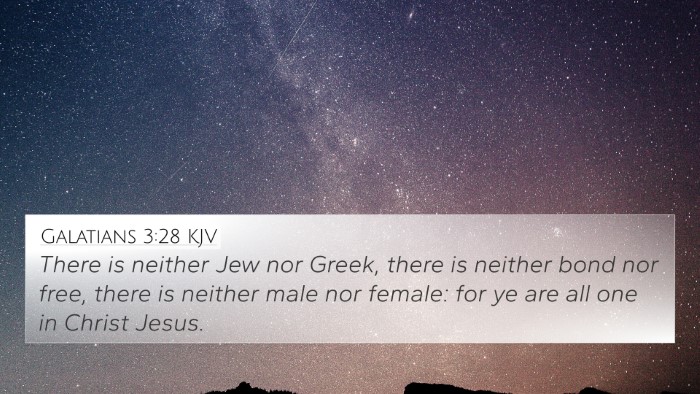Understanding Acts 2:18
Bible Verse: "And on my servants and on my handmaidens I will pour out in those days of my Spirit; and they shall prophesy." (Acts 2:18)
Contextual Overview: Acts 2:18 is part of the Apostle Peter's sermon on the Day of Pentecost, where he explains the outpouring of the Holy Spirit as a fulfillment of the prophecy from Joel 2:28-32. The verse emphasizes the inclusivity of God's Spirit, highlighting that both men and women, servants and maidens, will receive the Holy Spirit.
Summary of Meaning: This verse signifies the democratization of prophecy in the Church, allowing anyone, regardless of social status or gender, to receive divine revelation and share God's message. The mention of "servants" and "handmaidens" reflects a shift from a religious system that favored only a select group to one where all believers are empowered to speak for God.
Commentaries Insights
-
Matthew Henry:
Henry emphasizes that this promise signifies that all Christians are called to be vessels of God's Spirit. He remarks on the significance that the Spirit is given not only to the elites or leaders but also to the ordinary believers, showing that God’s grace is freely distributed.
-
Albert Barnes:
Barnes explains that this outpouring indicates a new era, where God's communication transcends boundaries. He notes that the act of prophesying, a sign of the Holy Spirit's influence, reinforces the idea that divine insight can come from unexpected sources.
-
Adam Clarke:
Clarke draws attention to how this prophetic gift signifies significant changes in the Church. He elaborates on the inclusivity of the Gospel, which empowers the marginalized, and suggests that this reflects the universal scope of salvation.
Related Bible Verse Cross-References
- Joel 2:28-29: The original prophecy about the outpouring of God's Spirit, which Peter cites in his sermon.
- 1 Corinthians 12:7-11: This passage discusses the spiritual gifts given to believers through the Holy Spirit, including prophecy.
- Acts 10:44-46: The Holy Spirit is given to Gentiles, illustrating that the Spirit is not limited by race, gender, or status.
- Romans 8:26: The work of the Holy Spirit as an intercessor, emphasizing spiritual help in our weaknesses.
- Ephesians 4:11-13: Discusses the giving of apostles, prophets, and evangelists, showing the role of the Spirit in leadership.
- 1 Thessalonians 5:20: Encourages not to despise prophecies, indicating their ongoing relevance in the Church.
- Galatians 3:28: Paul states that in Christ, there is no distinction between gender, social status, or ethnicity, aligning with the themes in Acts 2:18.
Thematic Connections and Implications
This verse connects to several themes across the Bible:
- The Role of the Holy Spirit: Acts 2:18 encapsulates the broader theme of the work of the Holy Spirit throughout the scriptures, linking to passages that speak of empowerment and guidance.
- Inclusivity of the Gospel: It implies that God's message and gifts are for everyone, aligning with the Great Commission in Matthew 28:19-20.
- Prophethood of All Believers: This democratization of spiritual gifts reflects the belief in the priesthood of all believers as stated in 1 Peter 2:9.
Tools for Bible Cross-Referencing
For those looking to deepen their understanding through cross-referencing, several tools and methods can aid in comparative Bible verse analysis:
- Bible Concordance: Utilize a concordance for finding connections between themes and words.
- Cross-reference Bible Study: Employ resources that provide cross-reference guides alongside scripture.
- Inter-Biblical Dialogue: Engage in studies that highlight dialogues between the Old and New Testament.
- Bible Study Software: Many software programs allow users to visualize connections and notes across various scripture passages.
- Study Bibles: Look for study Bibles that feature commentaries, footnotes, and thematic connections based on topics.
Conclusion
Acts 2:18 serves as a profound reminder of God's desire to reach all humanity. It reassures believers that they are equipped by the Spirit to fulfill their roles in proclaiming God's message. Understanding this verse within the context of biblical cross-references and various commentaries offers a rich tapestry of insight into its significance and application in the life of the Church.






